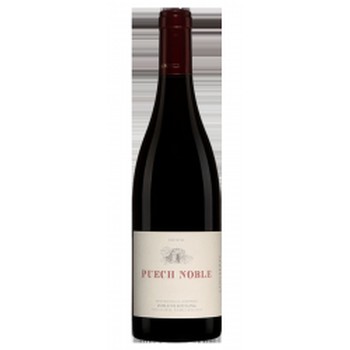
Syrah, Dom Rene Rostaing 'Vassal de Puech Noble' 2020
The estate dates to 1971, but rose to real prominence in the early ‘90s after founder René Rostaing inherited a treasury of prime vineyards from two of Cote Rotie’s early giants; his father-in-law, Albert Dervieux, and uncle, Marius Gentaz. René’s son, Pierre, today tends over 7.5ha of vines in 14 climats, including some of Côte Rôtie’s most revered vineyards such as La Landonne, Côte Blonde, La Viallière, and Côte Brune. Winemaking follows the classical model. Up to 100% of the stems are used depending on vintage and ripeness. An extended, gentle maceration is followed by aging in a mix of pièce and demi-muid, with only about 10-15% new.
In the late 1990s, René and his wife purchased a property in the Côteaux du Languedoc near Nîmes. The estate, originally named Puech Chaud, is now known as Puech Noble. Located on a small plateau, the ground is covered with galets roulés – rounded stones – very similar to those found in parts of nearby Châteauneuf-du-Pape. At 150m higher than most of Châteauneuf, however, Puech Noble is significantly cooler and offers a fresher character in its wines. The estate gave the Rostaings a chance to produce Syrah on the limestone soils so beloved by many French growers. Bolstered with small amounts of Mourvèdre, Grenache, and Rolle, Puech Noble is today producing some of the South’s most beautiful wines.
Vintage chart in Languedoc 2020: Excellent/Classic vintage. Generous autumn rains, a very mild December [2°C above the long-term average] and a warm February [the warmest since 2001 in Hérault] got the vines off to an early start: budburst for Chardonnay on the plains came as early as March 9th, so the frost risk was intense. In the end, though, all was well, and the warm conditions continued in April and May, with successful flowering. May, though, brought unusually copious rain to Languedoc – meaning downy mildew; the damage from this was less severe than in 2018, however. June began with cool, stormy weather, but thereafter summer was hot and dry though without heatwave conditions. Harvest came early, but Languedoc growers were generally happy with an average-to-good crop of juicy grapes producing well-balanced musts. Some Languedoc growers, though, suffered lower yields because of the dry, hot weather from mid-June; because of mildew; or because of the depradations of wild boar [numerous after a Covid-curtailed hunting season in 2019]. Yields were lower in general in Roussillon. All of the wines are elegant, fresh and aromatic: an excellent vintage.